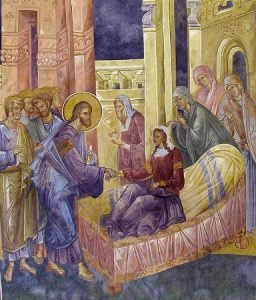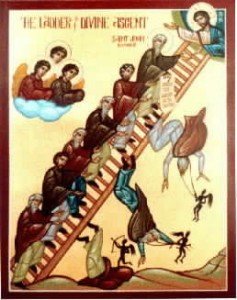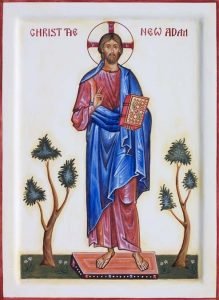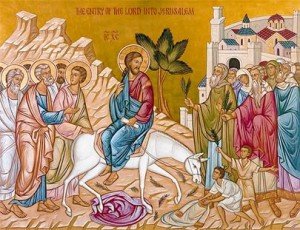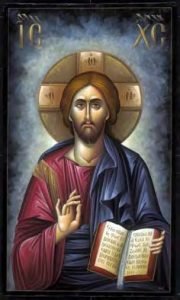![]() The Church’s liturgy and a life of personal prayer prepare us to live in God’s presence, to endure God’s presence, and to love God’s presence. This is of paramount importance if we are to acquire the mind of Christ. We must make this preparation in this world, otherwise, in the world to come, there will be no more time for us to make the appropriate adjustment to that which “eye hath not seen, nor hear heard, neither have entered into the hearty of man (I Corinthians 2:9).
The Church’s liturgy and a life of personal prayer prepare us to live in God’s presence, to endure God’s presence, and to love God’s presence. This is of paramount importance if we are to acquire the mind of Christ. We must make this preparation in this world, otherwise, in the world to come, there will be no more time for us to make the appropriate adjustment to that which “eye hath not seen, nor hear heard, neither have entered into the hearty of man (I Corinthians 2:9).
We may not ever find the perfect prayer that a few in a generation will reach. However, the Liturgy is perfect hypostatic prayer. Elder Zacharias of Essex tells us that the energy of this prayer upholds the universe. We need not despair of our lack of perfection in prayer, but rather hasten to enter into the Church’s perfect hypostatic prayer, which saves us and the world. Our work as Eastern Christians is liturgical: serving and living the Liturgy, and through this, bringing the world into the Church. We can never underestimate the power of the Liturgy and its ability to transform and inform the heart. Our primary tool for evangelism to those inside and outside the Church is serving the Liturgy and the services of the Church. It is this which constitutes the sanctification of the world and grants us an opportunity to participate in the holiness of God Himself. Therefore, we must always remember that the Church and its Liturgy are the Kingdom, the world to come, present in our midst today. St. Nicholas Cabasilas says: “What is the kingdom if not this Holy Bread and this Holy Cup.” We must beware of supposing that heaven is something that only is in the future. One author has stated: “We Eastern Christians are not waiting for the end of history and the end of time, but through living in Christ we are running to meet the end of history and thus already living the life expected after the Second Coming.
In simple words, we are living in the Kingdom of God RIGHT NOW. We are not waiting for as time to come but are doing all in our power to make His Kingdom real RIGHT NOW. One of the falsehoods that has crept into Christianity is that God’s Kingdom is something in the future. It must be, in our minds, something that is real right now. So it is important how we treat others, not in the future, but RIGHT NOW. Do you live this way?

